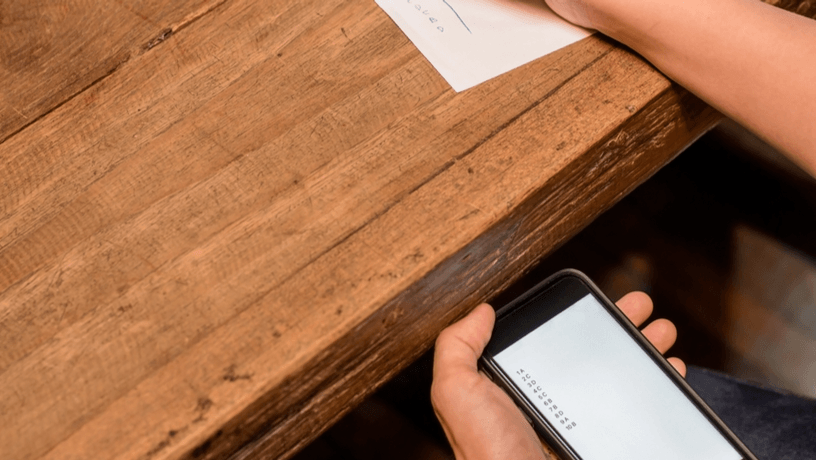Teach Your Trainees To Control Integrity
An underlying premise of every college student's life is academic integrity. Does it play the same important role when it comes to online education? Whether online or offline, a learning process is all about honesty and responsibility as a student. Academic integrity is a moral code they demonstrate when following the rules of an educational institution, including the "Don't cheat!" attitude. And this is what becomes a sketchy concept and the Achilles' heel of most students when they study online.
The Problem With Plagiarism In eLearning
According to statistics, many students cheat in college, despite strong policies and devastating consequences of plagiarism in academia. More than that, 54% of them believe it's even necessary to cheat to stay competitive. It stands to reason that such an attitude becomes even more challenging to control when speaking about online education:
- It's more tempting to cheat during online tests, spying for answers in Google.
- It's easier to steal ideas or even copy-paste others' work to complete assignments.
- It's tempting to ask anyone who took this online course earlier for information about exams.
- It's possible to submit the same work to several educators with no prior approval.
- It's tempting to ask others to do a job for you and then submit it as your own.
For eLearning trainers, it's more challenging to control students' academic integrity. They can't see if a student copies exam answers from books or crib sheets, or if they use others' work and paraphrase it to sound creatively different or avoid copyright infringement, etc.
But the message for online students here is not to go and start violating academic integrity! The message is to do their best to avoid plagiarism in online learning, as the positive result of their online education will highly depend on that. With some tricks and education tech tools available today, you can help students avoid plagiarism.
Teach Them To Control Integrity
In academia, whether it's about getting higher education in university or taking online courses, plagiarism is ultimately about writing assignments.
When asked to write an essay, a review, or a narrative, students risk "stealing" ideas, thesis statements, or even the whole works from others. As a result, duplications or poor paraphrases appear, which is a form of plagiarism and, therefore, can cost students a penal fine or expulsion.
Share the advice on how to avoid plagiarism in eLearning. Advise the following:
- Give yourself enough time to write a paper
Don't complete tasks at the last moment before deadlines; when under time pressure, we make unnecessary mistakes and controversial deeds. - Understand the context and don't copy-paste the text from your reference paper. Restate the idea and remember to mention the source in your list of references.
- Cite your sources and include quotations
- Present own ideas and paraphrase correctly
Don't merely change the word order in original sentences or use synonyms for every word to avoid plagiarism, but make sure to perform ideas and thesis such as you understand them. - Proofread before submitting it
Make sure you've cited all sources correctly. - Add value
Don't try to use all the information from all the resources you've researched for writing a paper. Include your insights on the topic too. - Talk to your online educator
Don't hesitate to ask questions to make sure you understand all the guidelines, including those about a reference page and in-text citations. In other words, build relationships with faculty as an online student. - Blogs and websites are your resources too
It's still someone's original work, so give them a reference. Just because you've found the info online and not in a book doesn't mean it's okay to use it without citing. - Use plagiarism checkers
There are plagiarism detection tools allowing you to see how much of your work has duplications. Scan your writing to highlight the potentially plagiarized parts and revise them accordingly.
Promote Tools And Resources That Help Avoid Plagiarism In eLearning
- Unicheck is a cloud-based software checking writings for similarities by web indexing.
- Plagramme is a free online tool (they have a paid version too), allowing to upload a text and scan it for duplications with its advanced algorithms.
- PlagiarismCheck.org is a tool to copy-paste a text online and see all issues with word rearrangement, poor paraphrasing, synonymization, and wrong citations.
- Copyscape is a resource that helps to see if the copies of our work are already published somewhere online.
- WhiteSmoke is a tool that does grammar, punctuation, and spelling check of a document, as well as its plagiarism check and even translation if needed.
- PlagTracker is a resource to check up to 5,000-word writings for duplications. Both free and paid versions available.
- Skribbr claims they are "the best plagiarism checker for students," using advanced algorithms to detect similarities in the level of sentences and word expressions.
- WriteCheck is a plagiarism and grammar checker by Turnitin. This service scans student papers for duplications and provides a detailed report on every issue it finds.
- Grammarly is a well-known online app for grammar, style, and spelling check. It has a premium version that also scans work and says if it includes any plagiarism issues.
Online education has its nuances and pitfalls, but it doesn't free us from academic integrity. Promote it via students and teach them to avoid plagiarism in online learning. It's a key to knowledge, skills gaining, and understanding its role in life and career.
Learning the ropes of avoiding plagiarism in eLearning, our students will never face this problem again. And what are your methods to control the academic integrity of your online trainees? Do you have any tricks or tools uncovered here? Please don't hesitate to share in the comments.









